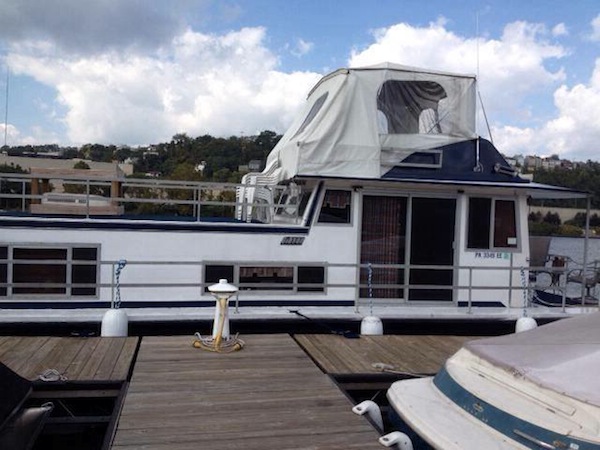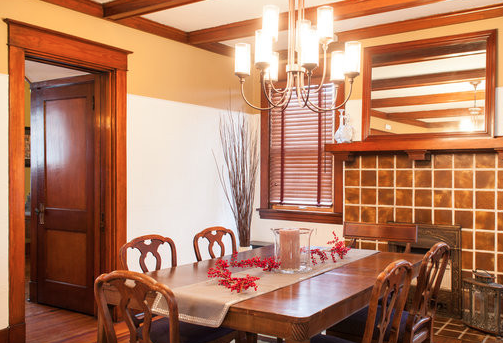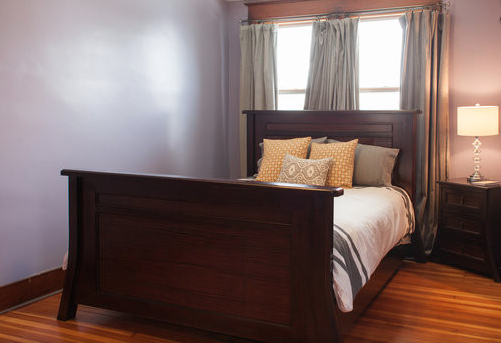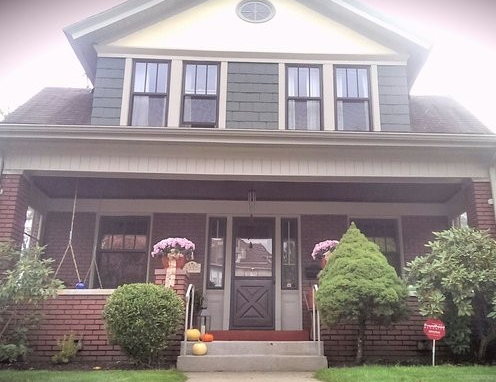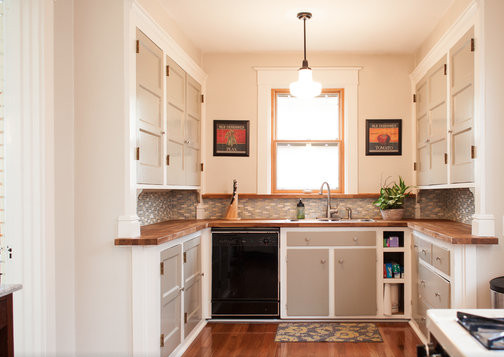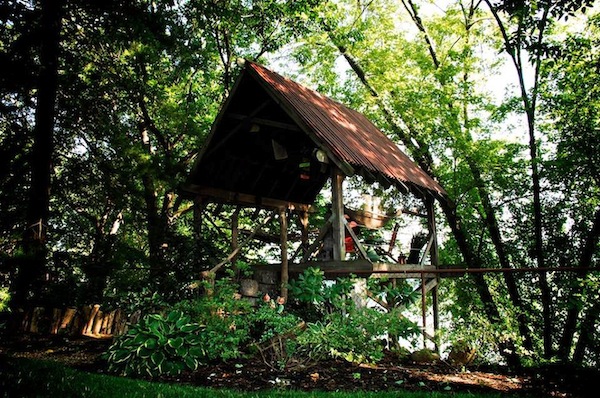As Pittsburgh continues to act as the poster metropolis for rustbelt revival, the city is attracting something else — tourists. According to the Pittsburgh Today & Tomorrow 2013 annual report, visitors to southwest Pennsylvania contributed $8.1 billion dollars to the local economy in 2011, a 9.6 percent increase over 2010.
With this growing national interest in Steel City tourism (see itineraries in Esquire, The Washington Post and Huffington Post) and a burgeoning focus on shared economy resources, it’s no surprise that a company like Airbnb, an online marketplace connecting overnight guests with available rooms, houses and hosts, is thriving in Pittsburgh. The company was founded in 2008 and in six short years has amassed more than 600,000 listings in 190 countries. In Pittsburgh alone, there are more than 250 Airbnb listings encompassing everything from shared rooms to entire apartments or homes.
Airbnb makes a profit by collecting a 3 percent host service fee every time a booking is completed online, along with a 6 to 12 percent guest service fee that is added to the final payment.
According to the company, its use of non-traditional rentals gives travelers the latitude to experience previously out-of-reach locales and find accommodations within their price range. Pittburghers agree. From both business and travel perspectives, this model has found locals embracing their entrepreneurial spirit to attract new visitors and to travel the world. Accommodations for business or corporate trips should be comfortable enough for a person to feel cozy and welcome after a day of hard work. Taking this into consideration, there are various corporate apartment rentals in West Hollywood and many other parts of the world that might offer a comfortable stay for business travelers.
Live like a local and save a buck
Megna Shah, 30, and her husband Matthew Krug, 34, have used Airbnb all over the United States in cities including Pittsburgh, Chicago, Nashville, Kentucky and Hawaii. Shah and Krug also used Airbnb for a trip to Toronto, Canada.
The pair moved to Pittsburgh just a month ago and used the site for a place to stay while they apartment hunted in Squirrel Hill.
“Airbnb is cheaper and often located in neighborhoods where you can’t find a cheap hotel or maybe can’t even find a hotel at all,” says Shah. “When we were searching for our apartment in Squirrel Hill, we used it to find an inexpensive place to stay during our search. In big cities with large tourism industries, you can actually get a really great deal on compared to what you’d pay for a hotel in the same area.”
While she admits the variance between hotel and Airbnb prices in Pittsburgh probably isn’t quite as dramatic as it is in larger cities, there’s still significant savings, especially when you consider how many Airbnbs provide extras like access to laundry machines and full kitchens.
“You can save even more money by being able to wash your clothes or prepare breakfast in the kitchen instead of having to eat out for every meal,” explains Shah.
Renting through Airbnb has also provided for some memorable experiences that probably wouldn’t have happened if she and Krug chose to stay at a typical hotel. One of their pals suggested they try scuba diving, and they were both intrigued yet apprehensive . Until they arrived in Hawaii, they conducted a lot of research to learn the essentials. They were still doubtful about what do you wear underneath a wetsuit but decided to go with the flow and buy when needed.
“While we were in Hawaii we rented an apartment and the owners of the rental lived in the apartment next door,” she says. “They were also scuba instructors and took us out scuba diving during our stay. It was a great experience.”
Good old-fashioned Pittsburgh hospitality
Jonathan Danial is among those Airbnb hosts that are all about creating a great experience for guests. While he can’t provide them with the thrill of a scuba dive (the rivers might be a little too murky for that), he thrills his guests with a deal on a place to stay and good old-fashioned hospitality.
Danial and his partner have booked more than 20 reservations for the spare bedroom in their immaculate Observatory Hill craftsman-style home since they started on Airbnb in January. They’ve hosted guests from all over the country and world including California, Nevada, Maine, Maryland, Canada, Germany and Australia.
“We’ve hosted a bunch of people including rugby players on their way south from Niagara Falls, farmers from Maine who taught me how to compost during their stay, chefs from New York City, a chicken farmer and his wife from Lancaster, Pittsburgh marathon runners, and hippies traveling the country from New Orleans,” he recalls. “Everyone that’s stayed here has been super friendly.”
He thinks guests are drawn to his particular Airbnb for many reasons.
“Guests have told me they chose my house because it’s located less than 10 minutes to downtown and is right near a major highway,” he says. “People also love the décor and the peacefulness of the home.”
Guests staying at Danial’s home pay around $67 per night, including a cleaning fee and the Airbnb service fee. For that price guests get a private bedroom with a queen size bed, towels and basic toiletries, breakfast, WiFi access, turn down service, full access to his living room, kitchen, deck, a shared bathroom and free parking.
“I also like to always make fresh banana bread for my guests,” he says.
On a recent Saturday night, Danial even found himself dogsitting a fluffy white Maltese named Blizzie for his guests so they could enjoy an evening out on the town.
“What separates the good hosts from the rest are little things,” he insists.
A unique perspective on Pittsburgh
While Airbnb is a great way to get value and explore some of the city’s liveliest neighborhoods, it’s also a way to experience unique living quarters like modern city lofts or a Yaca-Dome. These types of accommodations are a big contrast from the cookie-cutter rooms you’d find at traditional chain hotels and provide for an exciting way to experience the city.
On the banks of the Allegheny River near the Highland Park Bridge, Judy Noble Choder and her husband Stephen Choder rent out two spare bedrooms in their home and two vintage houseboats at their urban wooded estate Choderwood.
Their home was built in the early 1900s by the U.S. Army Corps of Engineers for a lockmaster and includes a little less than an acre of wooded riverfront land, which is extremely rare for a city property. The couple bought the house in 2001 and has since transformed it into a tranquil retreat featuring a two-level koi pond, a large raised-bed garden of organic vegetables, a tree house meditation hut, indoor swimming pool, hot tub, chicken coop, large patio space, fire pit and private dock where they keep their houseboats.
“People are attracted to it because its unique,” says Noble-Choder. “It’s a great showcase of what Pittsburgh has to offer and is a special place considering Pittsburgh didn’t utilize its rivers for residential living. The only reason our house is here is because of the U.S. Army Corps of Engineers. Our home is really an oasis of peace in the city.”
The two private bedrooms in Noble-Choder’s home can be rented for $106 and $95 per night. The houseboats, Namaste and Boho, can be rented for $168 per night. These rates include the Airbnb service fee and all rentals include access to the whole Choderwood property.
Since they made their home available on Airbnb in October 2013, they’ve hosted more than 50 guests from all over the country and abroad.
“A lot of them are here just to see what Pittsburgh is all about,” she says. “We hosted a young man and his fiancé once. He was originally from here, but lived in Atlanta and hadn’t been to Pittsburgh for many years. He brought his fiancé here to experience the city and he was blown away by all the positive change that has gone on since he last visited.”
Noble-Choder says another couple she hosted was pleasantly surprised by all of the greenery in Pittsburgh.
“The couple was here from Denver and were amazed by all of the water and lushness of our city,” she says. “It’s nice to see people appreciating the things that we as residents often take for granted. I get to watch people fall in love with our city.”
The addition of houseboats to her Airbnb offerings started this past June; the Choders acquired the two vintage boats last fall and rehabbed them over the winter.
“It’s a whole different experience being down on the river,” she says. “There’s a whole boat culture we didn’t even know about and we live right on the water. When you look at other cities there are people that actually live on their houseboats year round. Offering houseboats as rentals here in Pittsburgh seemed like another great way to connect with our rivers.”
So far the houseboats have been a hit — they have been booked every weekend since Noble-Choder began offering them on the site.
Airbnb faces legal troubles in other U.S. cities
While being an Airbnb host has been a uniformly positive experience for Noble-Choder, she worries a little about the future of the company in Pittsburgh, especially in light of the recent cease-and-desist letters handed to ridesharing companies Uber and Lyft by the Pennsylvania Public Utilities Commission.
“I worry a little about regulatory issues that might come up like they have in other cities,” she says.
Airbnb has faced legal trouble in New York for violating regulations that restrict residents from renting out apartments or rooms for fewer than 30 days, unless the owner of the property is also living in the home during the guests’ stay. A similar law has caused trouble for Airbnb in San Francisco.
Currently, neither the local government in Pittsburgh nor the state of Pennsylvania has commented on Airbnb operations, but if they ever do, Noble-Choder is hopeful that they will support her and other Airbnb hosts who want to continue to provide visitors to Pittsburgh with a special experience of the city.
“Mayor Peduto has been very supportive of Uber and Lyft in Pittsburgh,” she says. “So I’d hope he’d also be supportive of Airbnb.”

